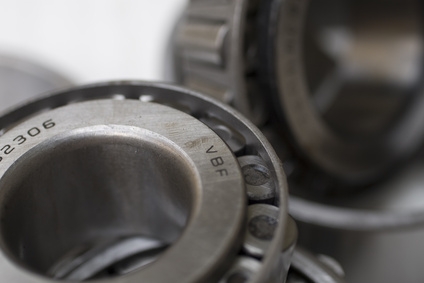
Wheel bearings permit your car's wheels to rotate with minimal friction and support its weight. Most rear wheel bearings are designed to perform for approximately 150,000 miles, though improper adjustments, contamination from foreign objects or a loss of grease can wear down the bearing in a shorter amount of time. Most drivers notice rear wheel bearing damage after the bearings begin making unusual noises, such as grinding, clicking or humming. Maintain rear wheel bearings by checking them for any potential damage.
Jack the rear wheel up. Check your car's manual for instructions on how to safely jack your car up.
Hold the wheel with one hand at the 12 o'clock position and with the other hand at the 6 o'clock position.
Rotate the tire counterclockwise. If there is any unusual noise or grinding resistance, your bearings may be damaged and in need of repair.
With your hands in the same position, rock the tire back and forth with moderate force. There should be limited movement, or play. Too much play affects steering performance and is dangerous, especially when driving the car at high speeds.
When you have sufficiently inspected the rear wheel for damage to bearings, lower the car jack and have the car serviced as soon as possible.